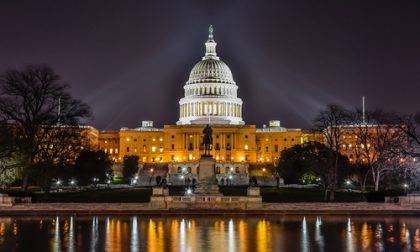Big Fish Gaming Targeted in Latest Washington State Illegal-Gambling Class Action
The latest in a running series of class-action lawsuits targeting social-gaming offerings available in Washington State has been filed in the U.S. District Court for the Western District of Washington. This latest lawsuit over whether social-gaming offerings constitute a violation of Washington State gambling laws targets Big Fish Gaming, the one-time subsidiary of Churchill Downs, Inc. (CDI) now owned by Aristocrat Technologies, Inc.
The lawsuit was brought on behalf of a Florida resident, Manasa Thimmegowda, on behalf of an unknown number of possible class members, and it’s not the first such lawsuit to target Seattle-based Big Fish since an appellate-court reversal in another case in 2018 opened the door to such possible claims.
 Among the issues to be addressed in the lawsuit are Big Fish’s ongoing offering of such things as slots titles that are initially “free to play” but offer players the opportunity to purchase additional coins, even though those purchased coins can never be be cashed out. The lawsuit accuses Big Fish Games, Inc., current owners Aristocrat Technologies Inc. and prior owners CDI of operating illegal online casino games.
Among the issues to be addressed in the lawsuit are Big Fish’s ongoing offering of such things as slots titles that are initially “free to play” but offer players the opportunity to purchase additional coins, even though those purchased coins can never be be cashed out. The lawsuit accuses Big Fish Games, Inc., current owners Aristocrat Technologies Inc. and prior owners CDI of operating illegal online casino games.
“As we allege in our complaint, the mobile gambling industry, by design, preys on consumers by bringing additive gambling opportunities directly into their homes,” said Christopher Dore, an attorney from Edelson PC, a firm specializing in online consumer-protection matters. Dore also told Seattle’s KOMO News, “We look forward to proving that companies are aware that many of their customers fall victim to these gambling games, with significant negative impacts on their lives financially and otherwise.”
The lawsuit alleges that Big Fish Casino, the primary revenue generator in the Big Fish product family, brings in over $100 million annually, while the company as a whole generates over $200 million in annual revenue.
Several lawsuits were filed against social-gaming companies after an appellate court reversed an earlier ruling in the long-running Kater v Churchill Downs Inc. case, which dates back to 2015, and concluded that the sale of coin packages violated Washington’s gambling codes. That case marches on, with Churchill Downs failing more recently in an attempt to invoke arbitration language embedded in its terms of service, and also by selling Big Fish in its entirety to Aristocrat Technologies. As part of the terms of sale to Aristocrat in 2018, Churchill Downs was forced to indemnify against the possible losses and expenses incurred as a result of the Kater v. Churchill Downs case. CDI has failed to date in its legal attempts to severe parent company CDI from the possible liabilities incurred by the wholly-owned Big Fish subsidiary, which CDI itself acquired in 2014.
The whole mess triggered several other firms to pull their free-play offerings from Washington State last year, as the first flurry of cases targeting major operators were filed. These six cases alleging “free” social-gaming offerings to actually be illegal under Washington were filed in April and May of 2018:
- Wilson v. PTT, LLC, No. 2:18-cv-05275-RBL (W.D. Wash. Apr. 6, 2018);
- Wilson v. Huuuge, Inc., No. 2:18-cv-05276-RBL (W.D. Wash. Apr. 6, 2018);
- Wilson v. Playtika, No. 2:18-cv-05277-RBL (W.D. Wash. Apr. 6, 2018);
- Benson v. Double Down, No. 2:18-cv-00525-RBL (W.D. Wash. Apr. 9, 2018);
- Fife v. Scientific Games, No. 2:18-cv-00565-RBL (W.D. Wash. Apr. 17, 2018);
- Bell v. Game Show Network, LLC, No. 3:18-cv-05393-RBL (W.D. Wash. May 15, 2018).
Most of the lawsuits (including the one targeting Game Show Network) were filed by the same law firm, Tousley Brain Stephens. Tousley is not the law firm behind this latest case. All seven cases — eight, if one includes the initial Kater v. Churchill Downs matter — remain active.




















COMMENTS